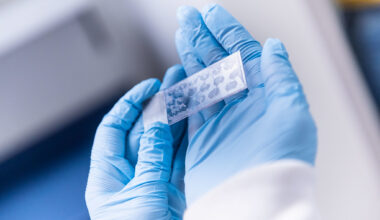Is rest the best thing for healing after a brain injury? The standard approach to treatment has emphasized a period of physical and cognitive rest following a concussion. Now, Dr. Naznin Virji-Babul at the Djavad Mowafaghian Centre for Brain Health is recruiting participants for a study that aims to turn the standard on its head.
Concussion is increasingly recognized as a significant public health concern, but it’s also one of the least understood neurological injuries. Research has demonstrated a clear link between head injuries and an increased risk of decreased motor and cognitive function and neurodegenerative diseases, including dementia.
Taking research from the lab to the playing field
Dr. Virji-Babul is a leader in traumatic brain injury research. Her findings from an earlier study involving adolescent athletes from the Vancouver Whitecaps FC Residency program, Seafairs Minor Hockey Association and other adolescent athletes in the lower mainland suggest that there are changes in brain networks after concussion, specifically in the area of the brain responsible for executive function, such as memory, reasoning, and attention.
“As there haven’t been any systematic investigations of the neurophysiological effects of physical activity following concussion, we will conduct a randomized controlled pilot study to compare the effects of rest versus graded exercise on brain function in the first week following concussion,” says Dr. Virji-Babul.
“This is a great opportunity for research to have immediate clinical applications.”
In collaboration with physicians and physical therapists from the Allan McGavin Sports Medicine Centre, where UBC athletes are treated, as well as with faculty in the departments of Neuroscience and Engineering at UBC, new research lead by Dr. Virji-Babul aims to challenge current guidelines around concussion intervention and establish evidence-based standards for identifying and treating concussions.
Participate in research
Participation in this study is open to adults aged 18 to 25 years who have recently sustained a sport-related head injury diagnosed as a concussion.
Kevin Valcke, a sport physiotherapy fellow with the Allan McGavin Sports Medicine Centre, will supervise participant activities in the study.
“Although there is a growing body of literature on the mechanism and physiological changes associated with concussion, the reality is that practical management of this injury hasn’t kept pace with research,” says Valcke.
For more information, or to participate in this study, please email s.porter@alumni.ubc.ca.


